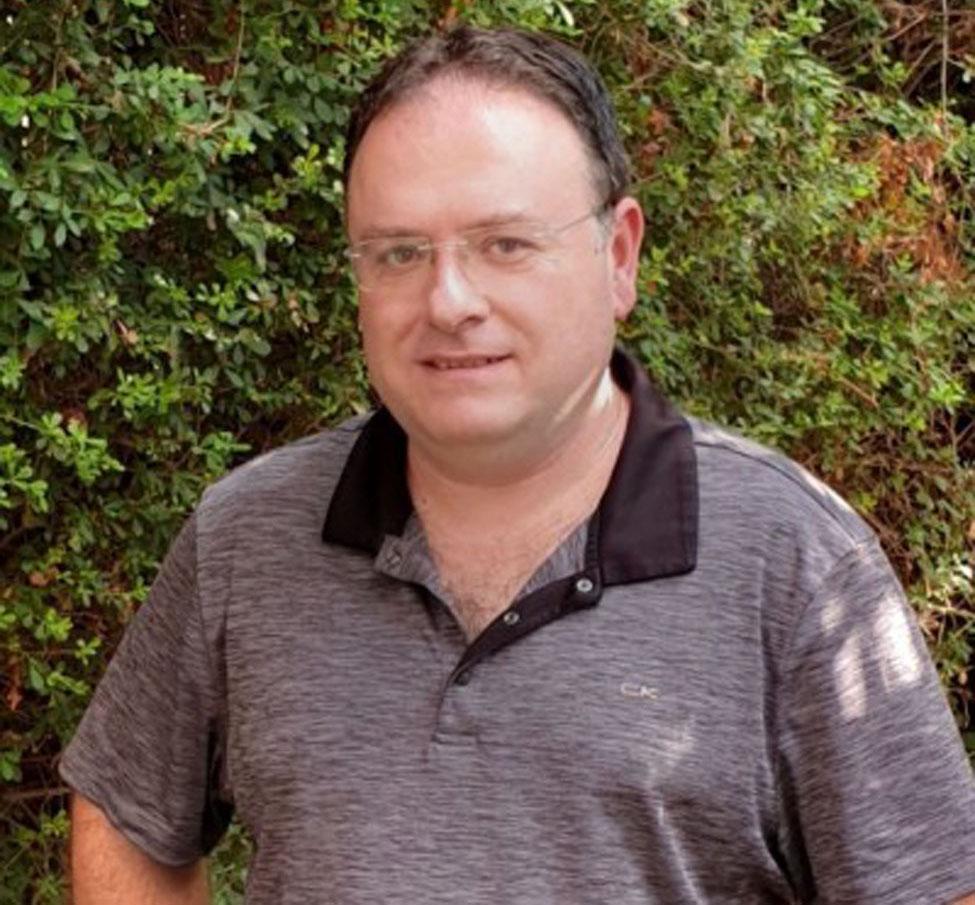
Meet the Future of Communication Platforms
Cloudonix - Pace Entrepreneurship Studio Startup
Eric Klein '90, '97, co-founder and COO
Nir Simionovich, CEO and founder
Interview with Lubin and Seidenberg alumnus Eric Klein
Tell us about your startup.

Cloudonix revolutionizes business communication with its Software Defined Voice and Text platform. Enterprises can streamline their operations and enhance customer service by integrating voice and data for a comprehensive service experience. With Cloudonix, companies can route voice and text communications from any digital source (websites, mobile apps, ads, emails, bus stops, or devices) directly to their call center, making it easier to capture leads and provide top-notch customer support. Cloudonix also enables remote teams to access cloud capabilities for their on-premise call center with added security, privacy, and cost-effectiveness.
How did you come up with the idea for your company?

Cloudonix's beginnings were not as traditional as you might imagine—considering its industry. Prior to Cloudonix, Nir and I were working together in Greenfield Technologies, a telecom-focused consulting and development company that Nir founded in 2007. Starting in 2013, multiple companies came to us that were looking for a high-performance VoIP developer SDK that was optimized for mobile devices. At the time, the offerings were just too bloated and didn't fit the mobile device properly. We set out to build that SDK, and did so. Originally, we didn't plan to build a SaaS platform; however, following an incident involving Nir's wife and his old SUV, the idea behind Cloudonix was born in August 2015.
The incident occurred on a Saturday night, where Nir's wife took his car and drove to a mall with two of her friends. Roughly at midnight, she called Nir, who had stayed at home with their girls, saying: "The car stopped in the middle of the road and there is a smell of gas in the car.” Nir tried to get her to call the insurance company and get a tow truck, but she was unable to do so, mostly due to the duress she was under at the time. So, at around midnight, Nir got a babysitter and drove the family's second car to get his wife. On the way, he tried calling their insurance company—a far from ideal experience. Key in your ID, key in your policy number, select your issue ... the list just goes on and on. He tried using the company's mobile app, and there were forms, upon forms, upon forms to complete. Why does it have to be so complex? So, Nir had an epiphany—why is it so stressful to call the insurance company for assistance? He realized that much of it was related to the method they use to gather data—it feels like an inquisition. When you use the app it goes to the dialer and knows nothing about you (at best it knows to tie your phone number to your account). This means you need to answer lots of questions for the agent to have the context to help you.
But why? The mobile app has already been authenticated; it has the policy number and it can get your location. Heck, it can even be paired with the car's computer to get the status of the car. The app has the context; we can help preserve it and make the experience less painful. The next day, we started working on building the platform that is now known as Cloudonix.
As an alumni entrepreneur, how did your classes at Pace University prepare you to start your business?
As a double alumnus from Pace, I am constantly surprised. I earned my first degree from Lubin—a BBA in Management Information Systems. This not only gave me a strong basis in programming (not that I do that anymore), but I keep using what I learned in my marketing and accounting classes. For example, accounting helps with the budget planning and forecasting. Almost everything you do in a startup is in some way related to marketing and sales, even if you never talk to a prospect. So having these as a basis really helped shape my career and daily life in our startup.
Being on campus, or in an accelerator, comes with a level of energy and people to consult that is missing when you are in your own office. Finding people to help you and to work with you becomes much harder once you pass outside of a university setting.
What is a challenge you've had to overcome as an alumni entrepreneur?
Being on campus, or in an accelerator, comes with a level of energy and people to consult that is missing when you are in your own office. Finding people to help you and to work with you becomes much harder once you pass outside of a university setting.
Do you have any words of advice for a student looking to kickstart their own business?
Keep talking with advisors and potential customers; learn what the pain points are and what customers would pay to solve them. Too many startups are a solution looking for a problem, and that tends to mean that you have no path to revenue, let alone success. Find out if pain potential customers are already regularly spending money on due to their use of difficult or multiple tools. Once you find a way to streamline or consolidate their pain, you will have a winner. Otherwise, at best, you are a nice feature to be acquired by another company.
Connect with Cloudonix:
Twitter:
Linkedin: